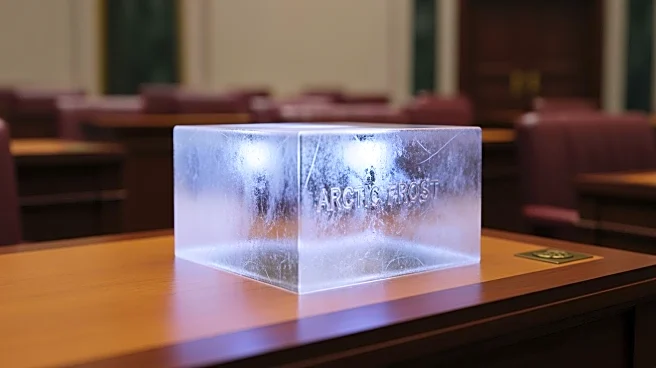What's Happening?
The U.S. House of Representatives voted unanimously to repeal a controversial provision in a government funding law that allows senators to sue the Justice Department for up to $500,000 when their phone
records are seized without their knowledge. This provision, part of the legislation that ended a historic government shutdown, was added by Senate Majority Leader John Thune following the release of FBI records related to the 'Arctic Frost' investigation. The investigation involved subpoenas for phone records of GOP senators as part of a probe into the 2020 election. The provision has caused bipartisan furor and highlighted divisions among Republican leaders, with House Speaker Mike Johnson expressing surprise at its inclusion.
Why It's Important?
The repeal effort reflects broader concerns about government overreach and the protection of personal privacy. The provision's potential financial implications for taxpayers and its impact on legislative accountability have sparked significant debate. The controversy underscores the challenges in balancing national security investigations with individual rights and privacy. The outcome of this legislative battle could influence future policies on government transparency and accountability, as well as the relationship between Congress and the executive branch.
What's Next?
The Senate's response to the House's repeal vote is uncertain, with some senators defending the provision as necessary to prevent future overreach by federal investigators. The debate may lead to further legislative efforts to address privacy concerns and government accountability. The Senate could consider expanding the provision to include private citizens, but the specifics of such changes remain unclear. The ongoing discussions may impact future legislative negotiations and the balance of power between Congress and the executive branch.








